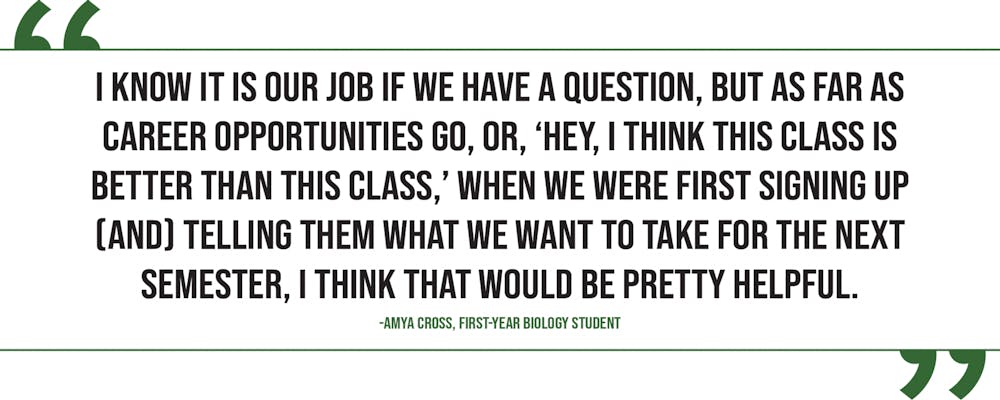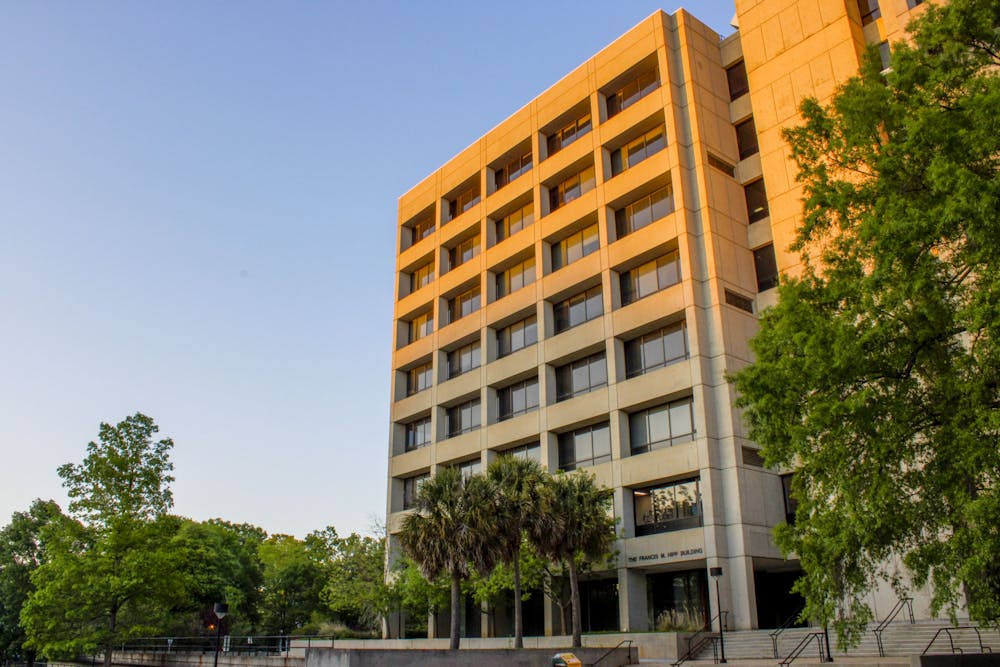Academic advisers for undergraduate students should go beyond assisting students with course selection and recommendations. They should be more involved with students by helping them explore different experiential learning opportunities and connecting them with resources that can help with their career aspirations and academic goals.
On Sept. 11, 2022, USC hosted its first Imagine Carolina, a forum where students had the opportunity to share their experiences and views on how the university could improve. Students said one of the main areas that could use improvement was advising. In response to student grievances, the university decided to hire more full-time academic advisers to better support students.
"The idea of having the full-time advisers is really (that) their primary job is working with students and helping students navigate campus, understand curricular requirements, co-curricular opportunities (and) career aspirations — really holistic advising," Assistant Dean of undergraduate advisement Claire Robinson said.
According to a 2021 survey conducted by the university, the overall student satisfaction with University Advising Center full-time advisers was 90%, whereas with part-time advisers, it was under 80%. However, only 79% of students with University Advising Center's advisers said they were advised on on experiential learning opportunities, such as study abroad programs and internships, and 74% said their advisers talked to them about career opportunities.
Even though full-time advisers do a better job of advising students overall, they need to be more proactive when it comes to assisting students beyond course selection. They can do this by connecting students with outside-the-classroom experiences that will elevate their skills and knowledge in college.
“I'd just like to see them actually reach out and be active instead of waiting on us to reach out,” first-year biology student Amya Cross said. “I know it is our job if we have a question, but as far as career opportunities go, or, 'Hey, I think this class is better than this class,' when we were first signing up (and) telling them what we want to take for the next semester, I think that would be pretty helpful.”

Instead of students having to ask their advisers for information about opportunities and resources on or off-campus, advisers should give that information unprompted, since they would have a better idea of the different opportunities out there for students to utilize and benefit from.
Advisers should also be asking questions about their students’ aspirations and goals during or prior to advising sessions so that they can inform students on what actions and steps should be taken to achieve these goals.
“They do offer some resources, but I feel like not enough that we could possibly need for the future,” third-year political science student Caitlin Stocking said. “I know for at least political science, I have to go to grad school afterwards. So, maybe just some suggestions for that on where to apply or what's needed would be helpful.”
Advisers should not only assist students with succeeding during college, but they should also help guide students so that they can succeed after college. Students who wish to continue their education at graduate, law or medical school should have a solid understanding of the requirements necessary before applying to those higher-level education programs.
Advisers should be more adamant in recommending students to take the next steps for certain pre-professional tracks and provide information about campus resources that would help guide students on their journey to higher education.
By ignoring topics about post-graduation plans and career preparedness during sessions, academic advisers are not doing an adequate job of preparing their students for life after college. USC advisers should take charge and be more active in students’ journeys toward job preparation.

